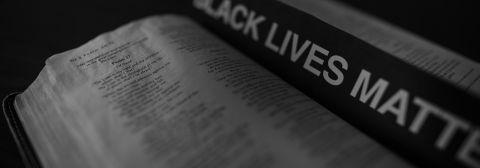
On Aug. 9, 2014, Michael Brown was killed by Ferguson, Mo., police officer Darren Wilson. In the year that followed, the #BlackLivesMatter movement challenged our nation — and our faith communities — to actively resist systemic racism. But "the church cannot be challenged without also changing our theology," Ryan Herring writes in Sojourners (Sept/Oct 2015). So we asked people of faith: how has the Black Lives Matter movement shaped your theology?

Image via Heather Wilson/Dust and Light Photography
PHOTO ESSAY: On Monday, fifty-seven people were arrested as part of the #UnitedWeFight march and peaceful civil disobedience at the Thomas F. Eagleton U.S. Courthouse. The march was in commemoration of the year-long resistance sparked in #Ferguson by the murder of #MikeBrown.

Rev. Osagyefo Sekou and Dr. Cornel West climb over barriers at the St. Louis Department of Justice as part of the #UnitedWeFight #FergusonUprising. Photo © Heather Wilson / dustandlightphoto.com
The latest killing happened two days before the 1-year anniversary of Michael Brown’s death when Christian Taylor, 19, crashed his SUV through the window of a car dealership in Arlington, Texas. Officers shot him in the course of a struggle. In fact, as I write this, there have been 601 lethal police shootings in 2015, 24 of them unarmed black men, according to an ongoing independent analysis by Washington Post: That’s an average of two unarmed black men shot dead by cops per month since January. This number does not include police shootings of black women, police killings that did not involve gunfire, or deaths while in police custody. Freddie Gray’s and Sandra Bland’s deaths are not included in the Washington Post tally.
Over the course of the year since Michael Brown died, we have learned critical lessons that have fueled the movement, bringing together young activists, clergy, and evangelicals in unlikely, yet cohesive alliance.
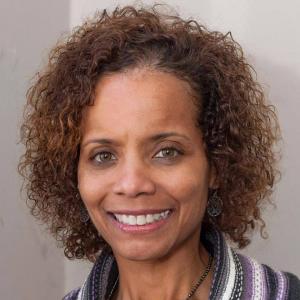
Leah Gunning Francis
Young people ignited by injustice, refusing to back down. A nation waking up to the reality of racial disparities. And a church that can no longer remain silent. This, says Eden Theological Seminary professor Leah Francis Gunning, is the real “Ferguson Effect.” As she protested in Ferguson over the past year, Gunning collected interviews from clergy and young organizers. The result is Ferguson and Faith: Sparking Leadership & Awakening Community (Chalice Press, 2015), a behind-the-scenes look at the role of the church in the Black Lives Matter movement. Sojourners interviewed Francis to learn more about the religious community’s role in supporting and sustaining a racial justice movement started by young activists.
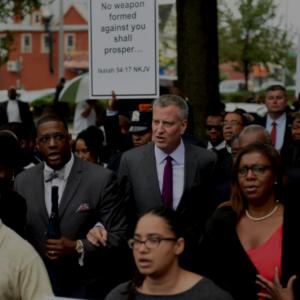
Image via a katz/Shutterstock
And here suddenly the letter lurches forward in time, slides through decades and lands squarely in our laps in 2015. It seems almost as if he isn’t talking about men and women of the past, but about Michael Brown, Eric Garner, Clementa Pinckney, Sharon Coleman-Singleton … the list is so sickeningly long.
He goes on to record injustices in Birmingham: “There can be no gainsaying of the fact that racial injustice engulfs this community. Its ugly record of police brutality is known in every section of this country. Its unjust treatment of Negros in the courts is a notorious reality. There have been more unsolved bombings of Negro homes and churches than in any other city in this nation.”
Wait. What are we talking about? Birmingham, or Cleveland? Ferguson? Charleston?
“Letter from a Birmingham Jail” has always itched at me, unsettled me. It bothers me because King isn’t writing to political leaders, but religious leaders, people of faith, people who follow the same Jesus as me.

Image via Dima Sobko/Shutterstock
Over the past year, #blacklivesmatter has taught me that the work of theology is not limited to the hallowed halls of academic institutions or sermonic reflections from prestigious pulpits on Sunday mornings. At community meetings and rallies, I learned new hymns in the form of movement chants. I learned that protest can be a form of prayer. #Blacklivesmatter is more than a hashtag. It is a call for repentance. It is an invitation into a state of prophetic grief and collective lament that does not anesthetize us from our pain but allows us to reconnect to the depths of our humanity by feeling, together, the torment our silence on issues of racial injustice has sown. It is only together that we will be able to actualize the transformation God is calling us to effect in this world.
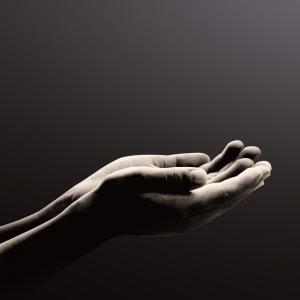
Photo via CHOATphotographer / Shutterstock.com
When called to lead, Solomon didn’t seek his own glory, his own comfort, his own peace. Solomon sought the shalom of all his people. So, too, did the leaders above — and God said yes.
The movement to protect black lives gestated in the womb of our nation for years before Ferguson, but God birthed a movement in that place — in part because of wise and discerning leaders of faith.
May God help us all to enter the one year commemoration of Michael Brown’s death and the uprising in Ferguson, Mo., by reflecting on how we responded to God’s question a year ago: “What should I give you in the face of black death?”
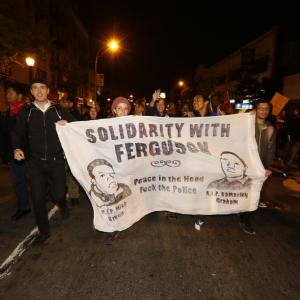
Activists march in New York City on October 11, 2014 in solidarity with renewed protests in Ferguson, Mo. Photo via a katz / Shutterstock.com
One year after the shooting and killing of Michael Brown, #FergusonTaughtMe is trending on Twitter. Activists, faith leaders, intellectuals, and everyday members of the movement have used the hashtag to explain how Ferguson fundamentally altered their racial consciousness. Embedded are a few tweets from Christian leaders who shared how Ferguson changed the way they do faith.
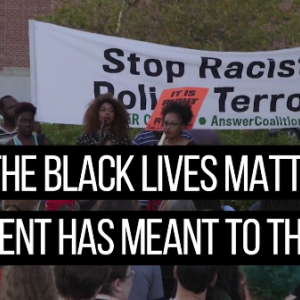
Sunday marked the 1-year anniversary of the killing of Michael Brown in Ferguson, Mo. Both in Ferguson, and across the country, the memorials and marches were held to remember those lost to police violence. Here in Washington, D.C., we attended one such demonstration and asked protesters what the #BlackLivesMatter movement has meant to them over the past year.

Image via SSCREATIONS/Shutterstock
In honor of the one-year anniversary of Michael Brown’s death in Ferguson, Mo., Sojourners asked a variety of faith leaders — Catholics, Baptists, Muslims, agnostics, evangelicals, and humanists — to reflect: How has your faith been challenged, affirmed, or deepened by the Black Lives Matter movement? Has your theology changed? And, most importantly, what are we being called to do?
Here’s what they said.
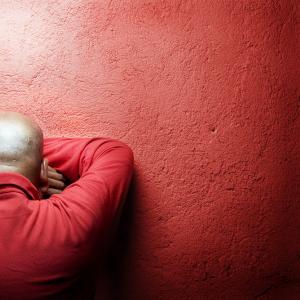
Image via Petronilo G. Dangoy Jr./Shutterstock
Even as the disciples of Jesus grieved at the foot of the cross, they understood there was work to be done. The work of justice is deeply political and requires an engagement in this present world. With tears in our eyes, we are called to march, rally, petition, sing, dance, create art, and use whatever gifts and talents we possess for the work of justice. The work of justice is deeply theological. Our church communities must foster a faith that gives people room to grow, to stretch, and to ask the tough questions. A grieving people need a theology for such a time as this, a theology that speaks to this present age. White churches, in particular, must end their silence and address the pain of grieving black lives, because the work of justice is collective. Even if you cannot possible understand all the reasons for our pain, you can come alongside a grieving people in love, humility, and solidarity.
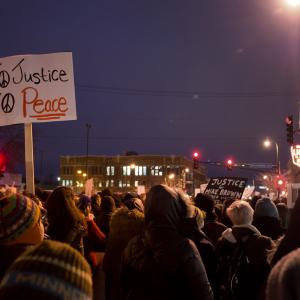
Solidarity rally in Minneapolis for Michael Brown in response to the Ferguson grand jury decision, Nov. 25, 2014 by Fibonacci Blue / Flickr.com.
It's a call and response chant started on the streets of Ferguson that has spread across the nation.
"Mike Brown means ..."
"... we got to fight back!"
It rolls off my tongue in a sing-chant cadence, and my hips begin to sway, because I have yelled it as I've marched and rehearsed it in my dreams. It is bitter and sweet. We evoke Mike's name and sway and pledge to fight. I've listened to voices I know and those I don't call and answer in hours of live stream and together in front of court houses and I know, I know in my soul what Mike Brown means.
Mike Brown means ... something more. Something larger than one more young black man shot in his neighborhood.
One year later, Mike Brown means ... something more.